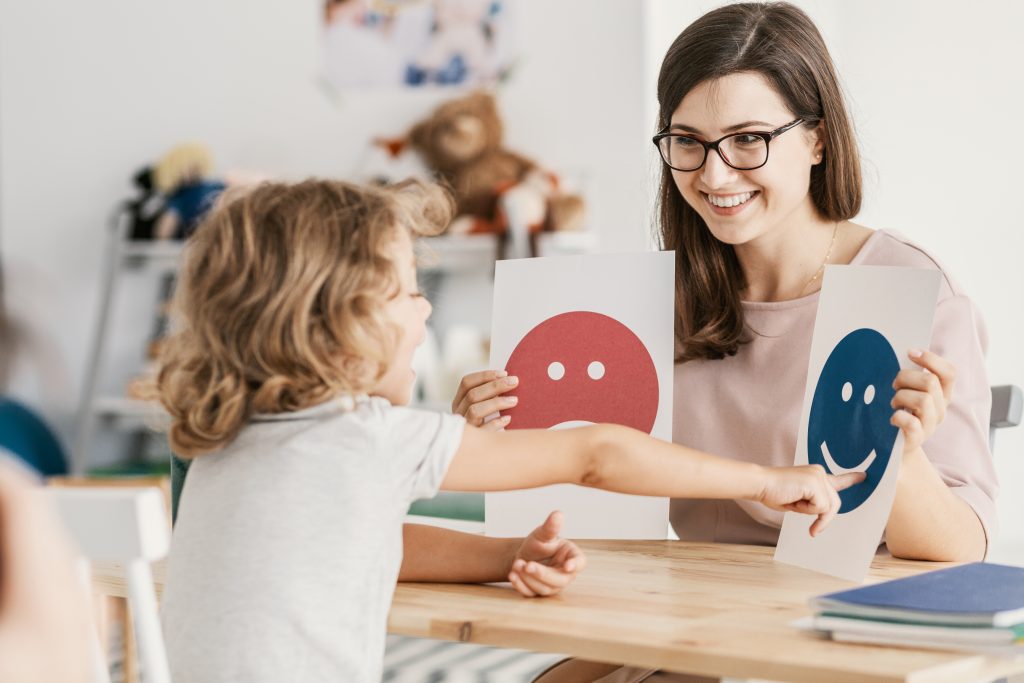How To Encourage Your Child With Disabilities To Improve Their Social Skills
Making eye contact, recognizing social cues and adjusting accordingly, having a firm handshake—these are just some of the social skills necessary to navigate social interactions. Most people learn these naturally at a young age, often at varying speeds. But for kids with disabilities, learning and developing social skills is a unique process and often requires a great deal of effort and time, as well as different sets of instructions.
For parents of kids with disabilities, it could be hard to watch them struggle to learn and adapt. You may feel a strong urge to protect them from any teasing or embarrassment that may occur. However, it’s important for them to develop these skills naturally, as it is fundamental to how they will interact with others later in life.
While there’s no one-size-fits-all method for children with disabilities, there are some things you may want to try to help your child develop better social skills.
- Consider One-On-One Therapy
Kids with developmental disabilities like autism or Asperger syndrome won’t be able to pick up on subtle social cues and habits of everyday interaction. Because of this, simply exposing your child to other people may not be helpful. Instead, you may want to look into children disability services and consider having a therapist work with your child one-on-one.
One-on-one therapy is often beneficial for children with disabilities, especially behavior therapy, which operates on the belief that all behaviors can be learned. After making initial observations, a therapist can come up with a program tailored to your child’s needs and strengths, and thus aid in their development. This allows your child to learn social skills from someone who is able to help them understand their behavior and who knows how best to encourage good behavior.
- Reinforce Positive Behavior
Positive reinforcement has long been an effective method for rewarding good behavior and encouraging children to develop good habits, especially those with disabilities. Often, children with developmental disabilities might not understand what is expected of them and why. Offering praise and reinforcing prosocial behaviors may help shape their development and cultivate the desired social skills.
To encourage positive social skills and behavior, you will need to choose a reinforcer that works. It could be a visual, verbal, or edible reward. It could even be social attention or an activity they enjoy. Once you’ve found an effective reinforcer, remember to reward your child with it immediately when they display the desired behavior.
Make sure to use various reinforcers to keep things interesting and engaging. If a reinforcer seems to be losing its effectivity, switch it up with other rewards that your child might enjoy.
- Set Up An Environment That Supports Their Strengths
Your child might need a little nudge when it comes to socializing, as children with disabilities may sometimes be self-conscious or scared, which prevents them from making the first move in terms of making friends. You can support them by arranging playdates or having them participate in events that capitalize on their strengths.
Children with special needs often have a specific area of interest, and you can use that to help them develop their social skills in an environment where they’re comfortable. If your child loves to read, you can take them to a children’s reading group at the local library. If they’re interested in playing a specific instrument, you can sign them up for a music class.
Highlighting your child’s strengths in a social setting can help them connect with others. Since they’re around children with similar interests, it can serve as a great starting point for positive interactions. Also, it can take away the initial shyness or awkwardness of social interaction, as they are more comfortable talking about their area of interest.
- Discuss Social Scenarios With Visual Aids
Preparing your child for social situations is essential. Having conversations wherein you discuss possible social scenarios can help your child learn more about people and build the tools they need to interact well in social situations.
You can talk with your child about possible social situations they may find themselves in, how they might respond, and whether their reaction is appropriate. To help them understand better, you may also want to prepare visual aid, such as videos, drawings, or pictures. These example scenarios could help your child learn what to expect and what behaviors to develop.
- Model Desired Behavior
Children could learn behaviors or mannerisms from watching other people. When they see certain behavior, they may try to mimic it. Therefore, if you would like to teach children how to behave in social situations, you can do so by showing them exactly how you would behave.
For a child with disabilities, you may need to take it a step further. Most times, children with developmental disabilities might not understand why someone is behaving a certain way, so they need help interpreting that behavior. You may need to break down the social interaction and explain it thoroughly for your child to grasp certain social skills better.
Additionally, you may want to consider role-playing, so your child can experiment and learn new social skills in a low-risk situation. This will also allow you to offer gentle corrections as needed, without them feeling the stress of an actual public social interaction.
Conclusion
Helping children with disabilities develop their social skills is not impossible, and they can make significant progress with the right guidance. However, you should keep in mind that it may not happen right away. Progress may happen slowly, and it may take some trial and error before you find the right method that works for your child. Fortunately, the tips mentioned above provide a good starting point.



